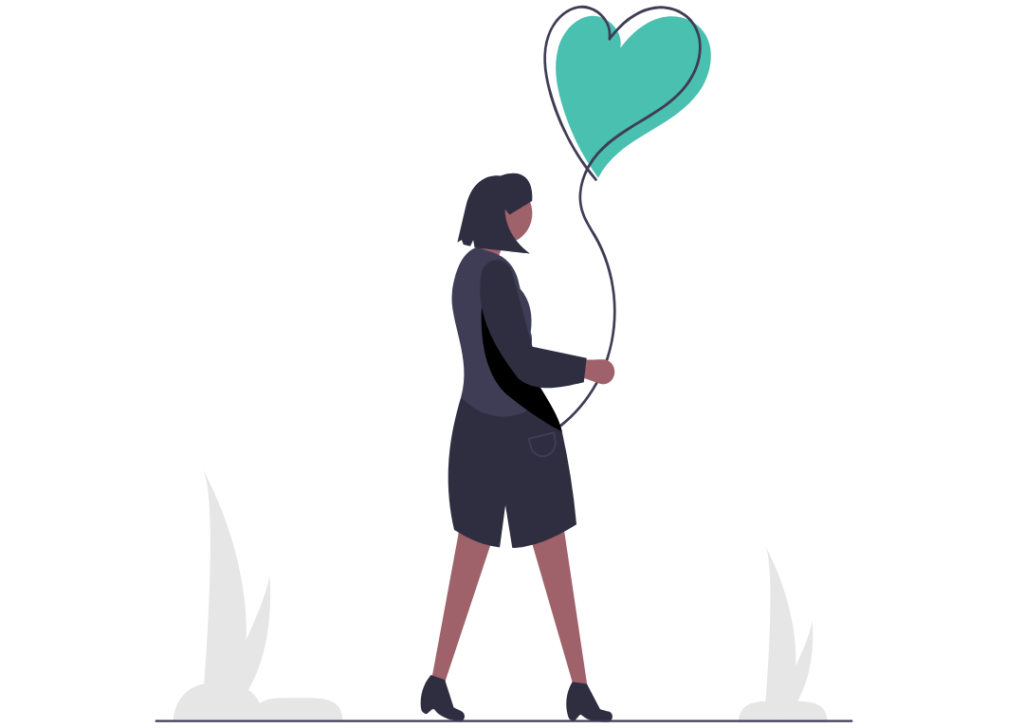
Saying Goodbye to My Mom in 15 Days
Klara was a few years out of college when her seemingly healthy mom was diagnosed with a rare form of cancer beyond treatment.

Jennifer O’Brien was a few years into her marriage when her husband Bob, a hospice physician, was diagnosed with stage IV metastatic cancer. Bob and Jennifer, both having healthcare and end-of-life care experience, knew how to plan for the future but that didn't make facing, managing and balancing Bob's last 2 years easy. Jennifer artfully shares the difficulty of managing palliative care as a team of one, the isolation and intimacy of caregiving and the realization that her and Bob we're experiencing different emotional journeys. This is Jennifer's story.
As told to Open Caregiving and lightly edited to enhance readability while preserving the author’s voice.
I am Jennifer O’Brien born in 1965, the first year of Gen X. Gen X is the consummate middle child of the generations, small and quiet compared to the “first born” Boomers and the babies of the family, Millennials, and Gen Z.
Originally from Chicago, I grew up in New Mexico, went to undergrad in Boston and have spent significant time as an adult in New Orleans and back in Chicago. Now, I find myself in Little Rock, Arkansas, which is one of the best kept secrets in the nation.
Perhaps the most significant two sentences about me are: 1) Three weeks after arriving at my freshman year of college (1983), my only sibling, David, was in a motor vehicle accident (MVA); did not initially die and had to be extubated three weeks later when scans revealed no brain activity. 2) I have spent my entire 35-year career in healthcare, mainly with physician organizations doing consulting or interim positions on the business and leadership side.
My beloved husband, Bob Lehmberg, a hospice and palliative care physician, and I had been married just a few years in 2015, when he found a couple of lumps on the left side of his neck and biopsy revealed them as a stage IV metastatic cancer. We had no kids. I was his only family caregiver. Because he was a hospice and palliative care physician and I had lost both my brother and mother prior, we had insights that many people do not have. Bob wanted nothing more than to continue working until he was no longer able. At the time of the diagnosis, my position was as a part-time consultant, so it made sense for me to stop working. Together we gave him exactly the last two years of life he wanted and thoroughly prepared for his death and my survivorship.
We talked very openly about his specific wishes. We downsized and sold our 100-year-old, large house and moved into a condominium, where I could stay and feel secure once I became a widow. We put property in my name. We prepared all of the documents necessary for my transition from caregiver to griever.
Here, I should point out a couple of things –
We had discussed advance directives and estate planning prior to Bob’s diagnosis. This was so helpful because those conversations, while serious and truthful, had illness and end of life in the abstract. We could then touch on those previous conversations to see if his wishes had changed as we navigated the reality of his life-limiting illness.
None of this was easy. Facing it, managing it, and balancing both our hope and our preparation did, I believe, make my transition from caregiver to griever much smoother than it would have been if we had not done the preparation.
Talking about end of life is some of the most intimate, meaningful processes a relationship can experience. Knowing your person’s wishes, listening to them, honoring them, and carrying them out is one of the most loving things we can do.
Bob lived for 22 months following his diagnosis. Only for the last six months of those was he unable to work. He wanted his privacy. He did not want to be the patient of the colleagues and professional caregivers he had trained or worked with over the years.
Thus, there was one oncologist and all of our palliative care was DIY. Because palliative care (PC) is an interdisciplinary team that supports patients and families with life-limiting diagnoses, the person that suffered most from our DIY PC was me. Yet, it was of paramount importance to me that I gave Bob end of life that he wanted and he did not want anyone other than me involved in his care.
There were some very difficult and sad times. He accused me of having an affair at one point. There were numerous times when I thought I might kill him before he had the chance to die of cancer. Overarching all of that, however, was our love for each other. I was committed to him feeling loved up through his final breath and he was committed to me feeling his love beyond it.
Early on Bob and I had a silly argument. He was tired and I was eager to leave for a weekend away together that we had planned. He said in his medical school faculty voice, “Jen, I am going to get you some literature on cancer fatigue,” to which I responded, “Bob, I am not one of your ____ing Palliative Care Fellows!” Needless to say the conversation ended abruptly and we did not go away for the weekend.
While I was thinking about our behaviors and what had just happened, I realized a couple of things:
The isolation and the intimacy. Isolation from the rest of the world. Seems only people who have done it truly understand how isolating it is. Even with all of Bob’s connections in our community, only a couple of physician friends checked in regularly.
At the same time, Bob and I became closer than ever. We had each other. We needed each other and as I said earlier, we were preparing for me to know and honor his end-of-life wishes.
I kept an art journal where I documented in words and collages thoughts and feelings on our process. I am a self-taught collage artist so that really helped me.
Also, I had a good friend who did not forget me. Every few weeks, she would call and ask if I could meet her for coffee or breakfast a couple days hence and most times I was able to. It was probably only the last two or three months that I was unable to get away for those visits. Like most family caregivers, I found trips to the grocery store and pharmacy like mini vacations.
A great deal of the self-care I did was in the form of regret prevention. Having been through a couple of losses previously, I knew I wanted to be able to look back on my time with Bob with no regrets about how I had behaved. I wanted him to die knowing he had loved me well and feeling that I loved him completely.
My free At-Peace Tool Kit: A Guide to Being At Peace with End of Life is a great resource for caregivers and care recipients alike. It is an easy yet robust guide to: loading your emergency health information into your smart phone and making it accessible even when the phone is locked; establishing and documenting your advance healthcare directives; getting paperwork in order and starting important conversation series about end-of-life wishes.
Palliative Care: Go Early, Go Often is my primary recommendation. Assert with your care recipient’s primary specialist the request for a consultation with the PC team. Do NOT let any physician, nurse or other health care professional tell you “It’s too soon for that.” Most people, including healthcare professionals, do not understand that Palliative Care is NOT Hospice.
Within the specialty of Palliative Care is the strong recognition that at the end of life comes death. This interdisciplinary team of specialty trained individuals includes social workers and chaplains who deal with serious diagnoses and their inevitable outcome all the time. They can often help initiate and facilitate conversations about quality of life and end of life with the objectivity and expertise that family caregivers simply do not have. Visit getpalliativecare.org to find a PC practice in your area.
I also recommend finding caregiver support groups either in person or online. When I was caregiving there was not much recognition of the plight of the family caregiver. We need society to recognize it even more but now at least there are some online support communities and resources that can help.
I have done some really difficult things in my life both personally and professionally. I buried my only sibling when he was 13 and I was 18. My mother became ill and died some years later. I have moved to cities where I know no one to do lonely, difficult, jobs. I have given a speech to an audience of 1500 (wearing a ridiculous costume). I did an acquisition of a $75-million, 200-employee, multispecialty practice in 84 days from letter of intent to close. I have taught world renowned surgeons how to get paid and sometimes that they would not be paid for procedures they felt they should have been. I allowed my very personal art journal about the saddest time in my life to be published as a book that won four awards. Caregiving for my late husband was the most difficult thing I have ever done and by far the greatest honor.
Sending all of the family caregivers courage, support, love and peace.
Learn more about Jennifer’s writing, art and personal experiences on her website: Hospice Doctor’s Widow.

Klara was a few years out of college when her seemingly healthy mom was diagnosed with a rare form of cancer beyond treatment.

Jane's husband, a permanently disabled Vietnam veteran, was diagnosed with Multiple Sclerosis over 30 years ago.

Steve cared for his wife, who had Primary Lateral Sclerosis, for 15 years when she suddenly had a stroke. That was a wake-up call.